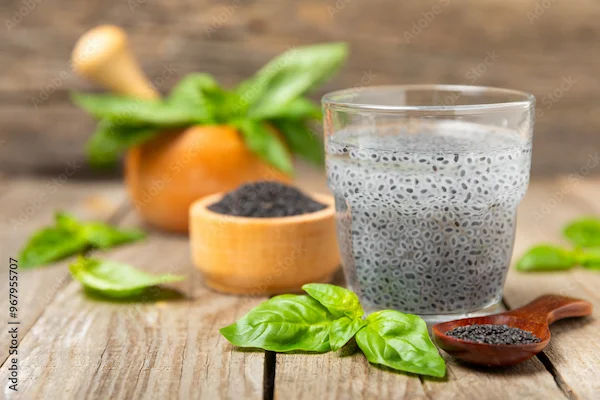Dangerous Uric Acid Levels Explained
Learn what dangerous uric acid levels are and how they can lead to conditions like gout, kidney stones, and heart disease. Discover symptoms, causes, and effective ways to manage high uric acid naturally and medically.

Written by Dr. Shaik Abdul Kalam
Reviewed by Dr. Rohinipriyanka Pondugula MBBS
Last updated on 28th Jul, 2025

Introduction
Uric acid is a natural waste product formed when the body breaks down purines—substances found in certain foods and also produced by the body. Normally, uric acid dissolves in the blood, passes through the kidneys, and is excreted in urine. However, when uric acid levels become too high, it can lead to serious health problems.
In this article, we’ll explain what dangerous uric acid levels are, their symptoms, causes, and how to manage them effectively.
What Are Dangerous Uric Acid Levels?
A healthy uric acid level in the blood is generally:
Men: 3.4–7.0 mg/dL
Women: 2.4–6.0 mg/dL
When uric acid levels exceed these ranges, it can lead to hyperuricemia (high uric acid). If left untreated, this can cause:
Gout (painful joint inflammation)
Kidney stones
Chronic kidney disease
Heart disease risk
Levels above 8.0 mg/dL are considered dangerous and require medical attention.
Symptoms of High Uric Acid
Some people with high uric acid may not experience symptoms initially, but over time, they may notice:
1. Gout Symptoms
Severe joint pain (often in the big toe, knees, or ankles)
Swelling, redness, and warmth in the affected joint
Pain that worsens at night
2. Kidney Problems
Sharp pain in the lower back or sides (kidney stones)
Frequent urination or difficulty urinating
Blood in urine
3. Other Signs
Fatigue
High blood pressure
Skin lumps (tophi) in chronic cases
If you experience any of these symptoms, consult a doctor to check your uric acid levels.
What Causes High Uric Acid?
Several factors contribute to elevated uric acid levels:
1. Diet
Purine-rich foods (red meat, seafood, organ meats)
Sugary drinks and fructose (sodas, fruit juices)
Alcohol (especially beer)
2. Medical Conditions
Obesity
Diabetes
Hypertension (high blood pressure)
Kidney disease
Consult Top Specialists for Personalised Tips
3. Genetics & Lifestyle
Family history of gout
Dehydration
Sedentary lifestyle
How to Lower Uric Acid Naturally
If your uric acid levels are high, these lifestyle changes can help:
1. Dietary Adjustments
Reduce purine-rich foods (limit red meat, shellfish, processed foods).
Eat more fruits & vegetables (cherries, berries, citrus fruits help lower uric acid).
Stay hydrated (drink 8–10 glasses of water daily).
Avoid sugary drinks & alcohol (especially beer and sweetened sodas).
2. Exercise & Weight Management
Regular physical activity helps maintain a healthy weight.
Avoid crash diets; rapid weight loss can increase uric acid.
3. Medications (If Needed)
Doctors may prescribe allopurinol or febuxostat to control uric acid.
Pain relievers (like NSAIDs) for gout attacks.
When to See a Doctor?
Consult a healthcare provider if you:
Experience sudden, severe joint pain.
Have frequent kidney stones.
Notice persistent fatigue or swelling.
Early diagnosis and treatment can prevent complications like kidney damage.
How Apollo 24|7 Can Help
If you suspect high uric acid levels or need a check-up, Apollo 24|7 offers:
Uric Acid Blood Tests (fast and accurate results).
Online Doctor Consultations (expert advice from home).
Personalized Treatment Plans (diet and medication guidance).
Conclusion
High uric acid levels can lead to painful conditions like gout and kidney problems, but with the right diet, lifestyle changes, and medical care, you can manage it effectively. Stay hydrated, eat wisely, and get regular check-ups to keep your uric acid in check.
If you have concerns about your uric acid levels, don’t wait—reach out to a healthcare professional for guidance.
Consult Top Specialists
Consult Top Specialists for Personalised Tips

Dr. Rajib Ghose
General Practitioner
25 Years • MBBS
East Midnapore
VIVEKANANDA SEBA SADAN, East Midnapore

Dr. Mohammed Huzef Ul Arifeen
General Practitioner
3 Years • MBBS
Hyderabad
Apollo 24|7 Clinic - Telangana, Hyderabad

Dr. Ramya Hari
General Practitioner
18 Years • Medical Head & Family Physician, DG Shipping Approved Doctor, Panel Physician - UK Visa Medicals
Chennai
Apollo Medical Centre Kotturpuram, Chennai
Dr. Indrajit Das
General Physician/ Internal Medicine Specialist
4 Years • "MD (Internal medicine) : Gauhati Medical College and Hospital, Guwahati (2018-2021) MD (Pathology) : Gauhati Medical College and Hospital, Guwahati (2012-2015) MBBS (Bachelor of Medicine, Bachelor of Surgery) : Silchar Medical College, Assam (2003-2008) "
Guwahati
Apollo Excelcare Hospital, Guwahati

Dr. Ajay K Sinha
General Physician/ Internal Medicine Specialist
30 Years • MD, Internal Medicine
Delhi
Apollo Hospitals Indraprastha, Delhi
(200+ Patients)
Consult Top Specialists

Dr. Rajib Ghose
General Practitioner
25 Years • MBBS
East Midnapore
VIVEKANANDA SEBA SADAN, East Midnapore

Dr. Mohammed Huzef Ul Arifeen
General Practitioner
3 Years • MBBS
Hyderabad
Apollo 24|7 Clinic - Telangana, Hyderabad

Dr. Ramya Hari
General Practitioner
18 Years • Medical Head & Family Physician, DG Shipping Approved Doctor, Panel Physician - UK Visa Medicals
Chennai
Apollo Medical Centre Kotturpuram, Chennai
Dr. Indrajit Das
General Physician/ Internal Medicine Specialist
4 Years • "MD (Internal medicine) : Gauhati Medical College and Hospital, Guwahati (2018-2021) MD (Pathology) : Gauhati Medical College and Hospital, Guwahati (2012-2015) MBBS (Bachelor of Medicine, Bachelor of Surgery) : Silchar Medical College, Assam (2003-2008) "
Guwahati
Apollo Excelcare Hospital, Guwahati

Dr. Ajay K Sinha
General Physician/ Internal Medicine Specialist
30 Years • MD, Internal Medicine
Delhi
Apollo Hospitals Indraprastha, Delhi
(200+ Patients)




